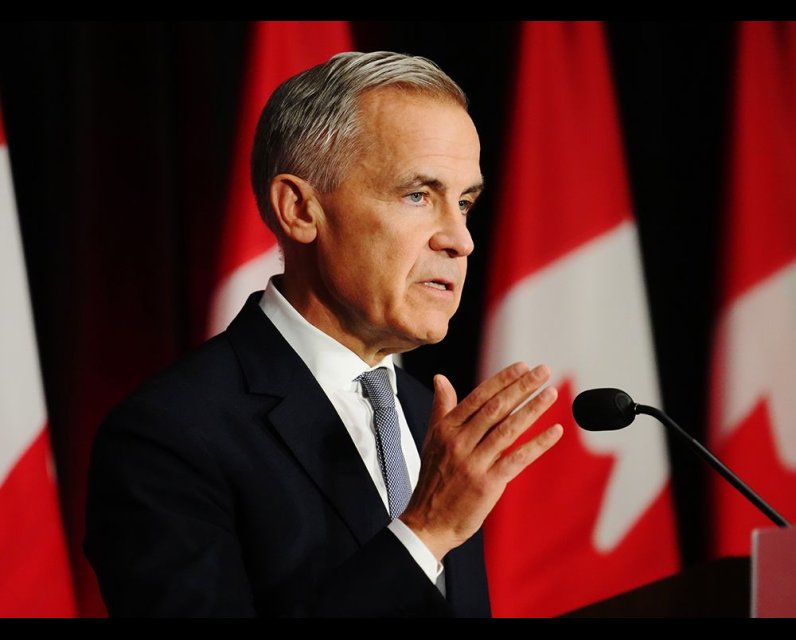'I don't know what'll happen': Young Canadians anxiously await federal budget after Carney warns of 'sacrifices'

OTTAWA — For many students across Canada, affordability is top of mind when it comes to the federal budget set to be tabled on Tuesday.
That includes Graham Baskin, a student at Carleton University. After Prime Minister Mark Carney told university students that Canadians should be ready for “challenges” and “sacrifices” in a speech last month outlining his priorities for the upcoming budget, Baskin said he is worried for his future.
“We all want a reliable future at this stage in our lives,” said Baskin. “To hear the prime minister say that times are going to be tough is concerning.”
Baskin, 21, suffers from a neurological affliction, similar to cerebral palsy, that affects the connection between his brain and legs.
The history student said he remains determined to finish his degree, but in spite of navigating accessibility challenges on campus — one of the “biggest recent challenges” he has overcome in recent years — coping with rising costs after graduation looms as his next big hurdle.
“I don’t know what’ll happen once I’ve graduated,” said Baskin. “I’m worried in the sense that if I still can’t find work, and prices are still a mess, then life just gets harder.”
Baskin’s worries follow a recent study that found 75 per cent of surveyed students hope to see the federal budget prioritize cost-of-living.
Canada’s cost-of-living crisis and tough job markets are taking a toll on university students, with nearly half saying they need financial support from either parents or other sources to meet their expenses, according to a recent CIBC poll.
Baskin worked at a local golf store in his hometown of Uxbridge, Ont. until last summer, when management abruptly told him to “find work elsewhere.” After applying to several places, including a local library where he sought to leverage his history degree, he simply “didn’t hear back.”
Justin Wiltshire, a labour economist and professor at the University of Victoria, said Canada’s “disappointing” job market only compounds cost-of-living concerns for students.
“I don’t think the cost-of-living concerns are new for young people,” said Wiltshire. “But it’s now a question of, given the current state of the labour market, the threshold is higher for students to even meet basic cost-of-living expenses.”
Yet, Wiltshire said the “future can be bright” for students ahead of the Liberals’ first budget under Carney.
He said there are plenty of opportunities for policies to glean from, offering former prime minister Justin Trudeau’s cuts to interest on student loans as an example.
“It was not particularly expensive, and young people could concentrate their funds elsewhere rather than paying interest on the human capital they’ve accumulated,” said Wiltshire. He also added that Carney’s new federal agency aimed at building affordable housing is “promising.”
“While it’s difficult to forecast the budget, what’s been telegraphed so far could turn the tide for young adults coming out of university.”
With days to go before Carney’s budget, Conservative Leader Pierre Poilievre struck a different tone in a recent speech to youth in downtown Toronto.
“[Carney] said that things are going to get worse and the change will take a very long time,” said Poilievre, who also added Liberals “are going to try and get Canadians to accept this permanent reduction in our quality of life.”
Wiltshire admitted that fixing cost-of-living challenges and a tightening labour market “isn’t going to happen in the very near future.”
“There’s nothing that’s going to happen right now, overnight, but we want to give people reason to believe the future is bright.”
Nir Hagigi, 21, said, as a student, the budget is “really a pivotal moment to give youth hope in a crisis like one we’ve never seen before.”
He added that he, and many other students, are pressed to make ends meet, often relying on university scholarships and food banks to get by.
“Most are realistically living on like $100 a week. That’s nothing. That’s literally poverty living,” said Hagigi. “I think specifically, for students, our crisis is because there are just not enough jobs and too many people who want a job.”
Referring to the labour market, Wiltshire said, “I do think it’s been more difficult now than in previous years, and there is no easy solution from the government.”
However, Wiltshire said he wouldn’t call it a “crisis.”
By making sure “your skills are timely and relevant, pursuing some kind of extended higher education program, or overall finding ways to demonstrate you’re developing soft skills,” Wiltshire said, students can find stable income.
Hagigi said his experience tells a different story.
This past summer, Hagigi was let go as a public policy analyst. Similar to Baskin, Hagigi applied to several positions, highlighting the skills he developed studying global and international studies at Carleton University.
“I got some interviews, but not a single job offer. And my case isn’t even out of the ordinary, I’ve seen this with students all over,” said Hagigi. “We’re just not able to find a job.”
It comes after the youth unemployment rate edged up to almost 15 per cent in September, the highest level since 2010, excluding the pandemic years, according to Statistics Canada.
Kevin McNichol, CEO of Prospect Human Services, a not-for-profit that helps place Albertans in jobs, said he’ll be watching next week’s budget for signs of new investment in job training programs.
McNichol said that after last year’s budget cut a $625 million federal job funding program, he hopes Ottawa supports initiatives that promote local career development and help schools provide rapid skill-building for youth entering the workforce.
But McNichols cautioned youth against relying on, or even expecting, budget measures to overcome cost-of-living and labour market issues.
Instead, he clarified that young Canadians must partly lean on “the values that define Canada: our resiliency and bravery to do what needs to be done when the going gets hard.”
“If I’m a young person, I’m holding onto those cultural values, I’m going out into the world, and I’m finding ways to make a name for myself.”
While Baskin said he’s unsure what specific measures he wants to see in the federal budget, anything that improves his standard of living would help.
“Affordable groceries, affordable housing, not being worried about work, and just being able to live a better life on a reasonable income,” said Baskin. “That’s what I’d like to see.”
National Post
Our website is the place for the latest breaking news, exclusive scoops, longreads and provocative commentary. Please bookmark nationalpost.com and sign up for our daily newsletter, Posted, here.




Comments
Be the first to comment